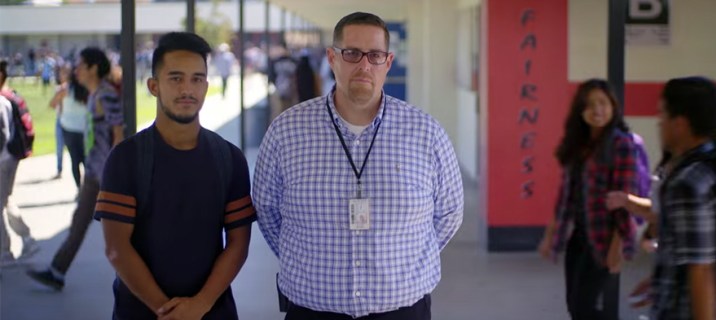Through XQ: The Super School Project, 10 schools have been awarded the chance to create novel approaches to educating high-school students.
Cynics have been dismissive of the program, calling it a waste of money or educational tourism.
These same people complain that the voices of teachers and students go unheard.
If these critics bothered to learn about XQ, they would realize it’s one of the most empowering efforts being undertaken in education today.
A CURRICULUM MADE FOR STUDENTS BY STUDENTS
One of the winners, Vista High, will use its $10 million to expand an existing personalized learning program, which enables students to take advantage of individualized classes and online learning to learn at their own speed and work in small groups, to the entire school.
The curriculum will be created by teachers and students. A traditional suburban high school in northern San Diego County, Vista is currently working with software developers to design an app that tracks students’ progress.
Classes will incorporate the United Nations goals for sustainable development, where students will complete work tackling global issues like poverty, hunger, health, education and the environment.
Individualized learning is by no means a new concept. But outside of expensive private schools and a few scattered public schools, students are rarely entrusted to show such high levels of creativity and independence.
Anthony Barela, Vista High’s principal, says the prize money will allow his school–where 73 percent of its students are Latino and 65 percent qualify for free or reduced-price lunch—to offer an atypical education in a district school serving a higher-need population.
“We’re not going to have the divide of the haves and have nots,” he said on this video. “This is going to give our kids some equity.”
GIVING TEACHERS AND STUDENTS A REAL VOICE
The innovation of XQ doesn’t just lie in funding radical reinventions of high schools, but in giving teachers and students a real voice in the re-creation of their schools.
The competition asked teams of teachers, students, and nonprofit organizations to submit proposals. How often do students get to share their ideas with their teachers and help apply for a $10 million prize? When are kids afforded the opportunity to shape the future of their schools? Under what other instances can teachers look at their students as peers?
XQ has placed huge bets on student and teacher voice, emphasizing the importance of teachers and kids working together as partners instead of the impersonal relationship so common between the two camps.
And as a recent report has shown, the relationship has soured. More than 60,000 students and 4,000 in at least a dozen states took online surveys asking whether they enjoy positive relationships at school. The report found there is a large disconnect in how students and teachers perceive their work and one another:
- Although 99 percent of teachers reported they respect students, only 58 percent of students feel respected.
- 82 percent of teachers say they solicit student opinions, but only 47 percent of students agreed.
- Only 57 percent of students agree with the statement “School inspires me to learn.”
- Just 64 percent of teachers agree that their school is a dynamic and creative learning environment.
- Fewer than half of students—49 percent—report they enjoy attending school.
This is more than a disconnect; it’s a divorce.
Spiffy technology and more challenging coursework don’t matter if students and teachers don’t have some say in how it’s all rolled out. By calling on students and teachers to create schools in which they can feel invested, XQ is pushing them to reimagine high school as a place they can both enjoy and derive meaning from.
If this celebratory screaming of adults and kids in a Vista High classroom is any indication, we may be one step closer to achieving this goal.
Caroline Bermudez
A proud graduate of Chicago Public Schools, she has a B.A. in history from Swarthmore College.
Latest posts by Caroline Bermudez (see all)
- La Absurdidad en la Omisión de Escuelas Charter en Los Angeles - November 6, 2016
- The Absurdity of Charter School Oversight in LA - November 6, 2016
- One High School’s Plan to Bring School to the Most Overlooked Students - October 26, 2016
- El Plan de Una Escuela Preparatoria Para Traer Escuela a los Estudiantes Que Más Se Pasan Por Alto - October 26, 2016
- See Why These Kids and Teachers in San Diego Are Screaming in Celebration - October 21, 2016

